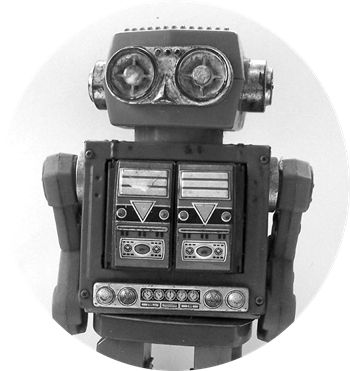 Imagine a world where machines make decisions. There would be an algorithm to sort the wheat from the chaff. These decisions could be made quickly, objectively and dispassionately, based upon programming and presented facts.
Imagine a world where machines make decisions. There would be an algorithm to sort the wheat from the chaff. These decisions could be made quickly, objectively and dispassionately, based upon programming and presented facts.
As Google develops the technology for autonomous self-driving vehicles, the decision making power of the digital age is being fully explored. What decision will be made by the Google inspired vehicle when it is faced with a situation where “Logic clearly dictates that the needs of the many outweigh the needs of the few…Or the one.”? In life and death circumstances this is a difficult (and very human) question. The answer, I suspect, is that the vehicle will do what it is programmed to do. If the algorithm determines that the passengers of the autonomous car should be sacrificed to save other lives, that decision will be made. If the primary directive is to keep the passengers safe, the cost to the world at large (in terms of human lives) may be higher.
There are many experiments underway regarding Online Dispute Resolution or “ODR”. These experiments, for the most part do not involve computers making decisions. Rather, they are portals, set up for the purpose of facilitating the flow of complaints, simplifying processes and streamlining needed information. The complaints are eventually dealt with by an on-line (human) mediator who attempts to resolve the dispute between the parties.
Many portals exist. Consumer Protection BC describes ODR has “an online self-help tool that consumers can use to resolve issues with one of (their) participating licensed debt collection agencies.” The European Union Alternative and Online Dispute Resolution (ADR/ODR) is to be used when consumers have a problem with a trader regarding a product or service they bought. They can settle their dispute in an online out-of-court through an Alternative Dispute Resolution procedure.
Another portal was proposed for dealing with traffic tickets in Ontario. The essence of this proposal was that the online process would apply only to infractions involving provincial statutes and municipal bylaws. Part of the proposal was that offenders would be assessed an “administrative money penalty” and that they would have access to the online process for resolving an argument about the ticket. At the end of the day, the matter was to be ultimately determined by a hearing officer, not a judge. The proposal was eventually abandoned because the system lacked “due process” and because of the backlash over many things including an attack on the “presumption of innocence” and the lack of “judicial hearing”.
All of these portals are somewhat creative but they rely upon a voluntary process of consensus building where actual decision making is not really digitally aided.
Enter Chatbot and Watson.
British technokind, Joshua Browder, developed an algorithm for what he calls a “robot lawyer”. Chatbot has helped tens of thousands of users in formulating successful defences to parking tickets in the United Kingdom and the United States. After the “bot” asked basic questions to determine eligibility for a defence, suitable advice was given.
IBM’s Watson and its various iterations have already changed the way in which legal research is completed. Rather than simply returning documents for review (like a search engine), the system actually answer questions.
Enormous strides are taken each day in advancing artificial intelligence. There may be a day when simple adjudications (or even more complicated ones) are decided by government computers. With systems like autonomous self-driving vehicles making life and death decisions, how far off can it be that “Judgebot” will be commissioned to deal with the ever increasing expense of brick and mortar courthouses. Decisions in the virtual courtroom will no doubt be made quickly, objectively and dispassionately. The question to be asked before embarking on such a long and arduous search for cheaper justice, however, is whether preference should be given to decisions made with patience, open-mindedness, courtesy, tact, courage, compassion, humility, common sense and understanding. My preference is for the latter.
Anthony Young, QC, is Counsel at Dunphy Best Blocksom LLP in Calgary, where he practices in the area of family law. In addition to his contributions to Law Matters, he is also the President of the Law Society of Alberta and past chair of the Alberta Law Foundation.